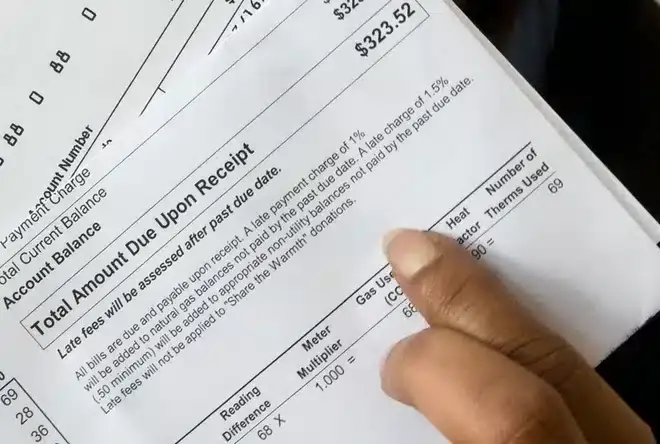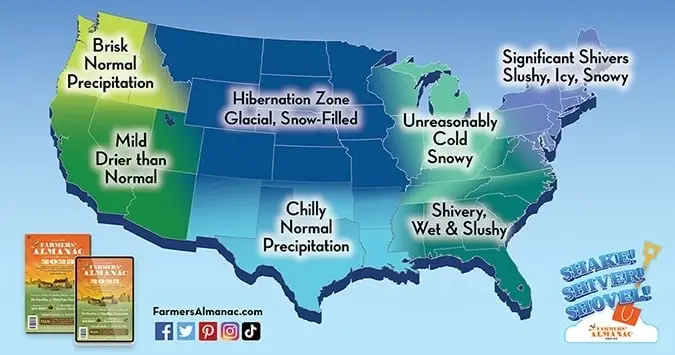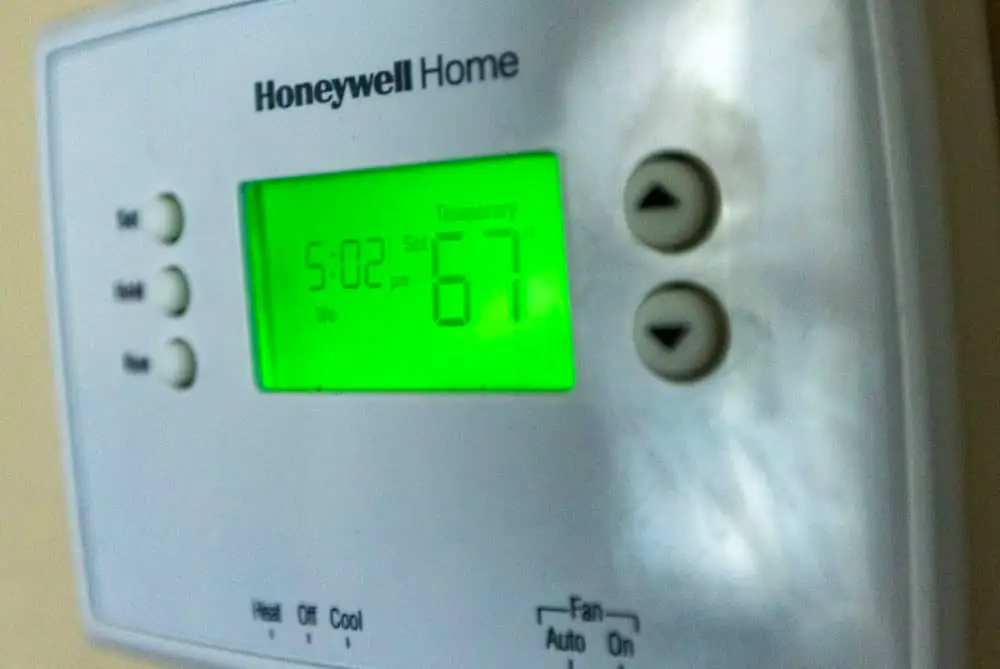This Article Will Discuss:

Energy Rates Spike Up To 85% — Even with a mild winter, New Englanders struggle to pay their energy bills. Get Help with Energy Bills this Winter Season With Our Tips Below
From groceries to gasoline, inflation is making our pocketbooks feel lighter in almost every sense. Energy bills are spiking here in New England, as National Grid, Eversource and other utility customers received a big jump in electricity, natural gas and heating oil rates this year. Home heating prices are at the highest level in 10 years, the energy assistance association said. In fact, your electricity bills might spike up to 64% this winter.
As New England homeowners ask why is my National Grid bill so high, they also look for ways on how to reduce energy bills. We’re here to help you understand why your energy costs are soaring and how to lessen the pain of those costs this winter season. This includes our Winter Customer Savings Plan.
Why Are Americans Struggling with Energy Bills?
1 in 6 Americans are already behind with their home heating bills, owing an average of $791. Families are struggling to pay high energy bills along with other rising costs for essential items like food and rent, which are increasing at a faster rate than the overall rate of inflation. According to USA Today, “Grocery prices rose 10.4% annually in December and rent rose about 7.5%, while overall inflation increased by 6.5%.”
The Numbers You Need to Know: Why are my heating bills so high? What Will You Pay to Stay Warm this Winter Season?

This question is the elephant in the room: why is my National Grid bill so high? New England homeowners, especially Massachusetts, have seen a big increase in energy bills this winter. The average cost of home heating is rising from last winter to $1,202, the second consecutive year of major price increases and the highest price in more than a decade, according to the National Energy Assistance Directors Association (NEADA). “Everybody should be aware that, this winter, Massachusetts will be, at best, a very high-cost energy winter so everybody should conserve as much as possible,” Judy Chang, undersecretary of energy and climate solutions in the Executive Office of Energy and Environmental Affairs, said.
The sad truth is that these increasing costs will leave many homeowners struggling to pay their energy bills. Meanwhile, the increasing energy bills come from a combination of high demand/capacity restraints, inflation, and global conflict with the war in Ukraine.
Current Electricity, Heating Oil & Natural Gas Increased Rates
You can’t put a price on heat and comfort, yet many are struggling to pay their heating bills here in New England. There is a substantial increase across the board in the costs of electricity, heating oil, and natural gas rates. According to a WBUR article, National Grid customers can expect a big jump in electricity, heating rates this winter compared to this time last year. The price of fuel oil is up 72%, and for some utility customers the cost of electricity and natural gas are up 129% and 38%, respectively.
Estimated Heating Expenditures by Fuel

According to Mass.GOV, household heating costs this winter are projected to be higher than last winter for all heating fuel sources due to higher expected consumption and prices. In Massachusetts, more than 51% of homes heat with gas and approximately 53% electricity.
Electric
- On November 1, 2022, National Grid announced an eye-popping 64% increase in electric bills thanks to the price of natural gas being “significantly higher this winter due to global conflict, inflation and high demand.”
- A typical Massachusetts homeowner uses 600 kilowatt-hours which is an average increase from $179 to $293
- Some homeowners are seeing an 85% increase in their electric bill. Last winter, the average electricity for heating came in at $728 for Massachusetts homes. This year, your electric heating bill may cost up to $1,350.
- Over the next 25 years, Massachusetts homeowners can expect to spend $109,700 on electric bills
Gas
- Natural gas rates are expected to spike by up to 38%, depending on your location. Last winter, homeowners with natural gas heat paid $773. This winter, you may pay as much as $988.
- If winter is 10% colder than the base forecast, it means that natural gas heating costs will rise by 51%
- Massachusetts is #14 in the nation for the highest gas heating bills
Oil
- Oil heat has the highest increase of up to 75%. In the winter of 2021-2022, heating oil cost an average of $2,155 for the winter.
- This means your new winter oil heating bill may spike as high as $3,771.
- Many New England homeowners are struggling to pay heating oil costs this winter
- 275 gallons of heating oil lasts approximately 56 days during the winter season
A Cold Winter Will Make High Energy Bills Even Worse
There’s another culprit in the mix of why your National Grid Bill is so high: winter is here, and it’s going to be a cold and snowy one.

New England is no stranger to cold winters, but a cold winter will not only make you uncomfortable in your home, it will also potentially drain your bank account. We know that winter will be cold, but the intensity and longevity of the cold will greatly determine the outcome of your energy bills.
“If we entered into a polar vortex or protracted period of time, with very, very cold weather – there would not be enough electric generating units in the region to serve the load,” Eversource CEO Joseph Nolan told WBZ News.
This is what we know so far about the impending winter season:
- Several areas will receive frequent snowfalls
- Temperatures will plunge to levels not seen in several years due to bitter arctic air
- Arctic blast weather hit Greater Boston areas with extreme record breaking temperatures the first weekend in February and arrived earlier than last year
- Predictions continue to forecast that Massachusetts will have below-average temperatures with a lot of slush, ice, and snow
- As a result of the cold winter weather, the Energy Information Administration anticipates that natural heating gas costs will rise by an average of $200, which is an increase of up to 38%
- The National Oceanic and Atmospheric Administration projects an 6% increase if colder days which will require an increase in home heating.
The unfortunate part is that there is no escaping the cold when you live in New England. Coastal Windows & Exteriors is here to help with energy bills this winter.
How to Reduce Energy Bills: Get Help with Our Winter Customer Savings Plan

Electric bills have skyrocketed this winter due to higher wholesale energy costs. The good news is that help is available with energy bills this winter season. We are working alongside National Grid with our own Winter Customer Savings Plan.
Life can be hard, but finding assistance shouldn’t be. With higher energy costs expected this heating season, planning now is more important than ever. We’re here to help with options to manage your energy bill and ways to save money. Let Coastal help you this winter season and start saving and lower your energy bills this winter.
Protect What Matters Most with Energy Efficient Exterior Products

Improving your home’s exterior can help save energy. The truth is that inefficient windows, doors, roofing and siding can have a tremendously negative impact on your energy bills. The downside is that no matter how you choose to heat your home, you’re going to feel the pinch in your wallet if you have inefficient energy products.
- Drafty windows account for up to 30% of your home’s energy loss. Install vinyl windows with low-e glass, insulating glass packages and the lowest air infiltration ratings possible to reduce drafts.
- Old doors can account for roughly 15% of a home’s energy loss. Fiberglass doors with a polyurethane foam core, quality weatherstripping and door sweeps can prevent energy loss through the seasons.
- About 35% of heat loss occurs through walls. Insulated siding with house wrap will insulate your home down to the wood studs while preventing thermal bridging.
- Around 25% of energy is lost through inefficient roofing. An energy efficient roofing system protects your home from the elements while regulating indoor temperature.
Rate increases for Massachusetts and New England homeowners are skyrocketing. Click HERE for the estimated energy prices for heating fuels during 2022/23 Winter Heating Season.
Serving New England for over 10 years (click here to see our service areas), Coastal Windows & Exteriors provides New England homeowners with quality exterior home improvement services, including replacement windows, roofing, siding, and entry door installation. Our products are carefully crafted with weather-resistant materials, engineered to protect your home through every season. We are a woman-owned, family-run company dedicated to educating New England homeowners on the importance of exterior maintenance. Contact us today for a free inspection and estimate on your next home improvement project.


